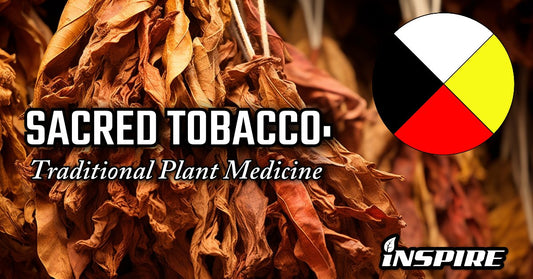Written By: Zach Champ
Connect with me on Instagram!

In the hidden corners of Virginia, among the shadows of the night, an enigmatic plant silently blooms, captivating those who dare to explore its secrets...

Datura (Datura wrightii & Datura stramonium), also known as "Jimson Weed" or "Thorn Apple," is a mysterious member of the Nightshade family, the same botanical lineage that includes tobacco and tomatoes.
This unassuming plant harbors a deadly secret, with a history intertwined with myths, legends, and even witchcraft.

In this article, we embark on a journey to unravel the intriguing story of Datura and its potent, yet perilous, properties.

DISCOVERING DATURA
Datura is widely distributed across Virginia, but its allure has attracted both botanists and curious adventurers alike. The plant's striking trumpet-shaped flowers open only during the night, their alluring fragrance attracting nocturnal pollinators. However, the beauty of Datura's flowers is short-lived, as they bloom only once before wilting away by the break of day.


THE DARK SIDE OF JIMSON WEED
Behind Datura's beguiling facade lies a dangerous truth - it is highly poisonous. An overdose of Datura can lead to severe health consequences and even death.

The culprit behind its toxic properties is a group of naturally occurring chemicals known as Tropane Alkaloids. Among these, scopolamine stands out as a key compound responsible for Datura's infamous reputation.

THE DELIRIOUS DANCE OF THE MIND
Scopolamine, a potent Tropane Alkaloid found in Datura, is responsible for inducing delirium and hallucinations in those who consume it.

Historically, this peculiar characteristic led to Datura's use in certain rituals, mind-control practices, and inebriation. However, its effects can be unpredictable and dangerous, rendering individuals in a state of stupor or confusion.
Criminals will often use it to rob unsuspecting victims by lacing their drinks at bars and following the victims home. The effects of Datura leave individuals incapable of thinking for themselves and highly vulnerable to suggestive commands and direction.
Many times, the victims will willingly open their homes up to thieves and give them all their valuables and belongings. The next day, when the effects of the Scopolamine wear off, the victims are left with a horrible hangover and amnesia where they can’t remember their actions while under the influence of the drug.

DATURA IN MYTH & WITCHCRAFT
Datura has left its mark on the pages of history, intertwined with myths and folklore. In medieval times, it was a principal ingredient in "Witches Flying Ointments," concoctions believed to allow witches to experience flight and communion with the supernatural. The legends of witches gathering under the full moon to concoct these mysterious potions have sparked curiosity and fear for centuries.

It is believed that this ointment was spread over broomsticks and that the Witches would use the broomstick handles to pleasure themselves sexually, while the ointment would be introduced to the mucous membranes of the vagina and absorbed. This would produce a powerful and intoxicating delirium which would give the witches a sense of flying through the air and would allow them to speak directly with entities and creatures.

This practice (if true) is inherited from old pagan traditions, and its sexual nature led to the persecution of practicing witches by the Christian Church in infamous events like the Salem witch trials which saw the execution of hundreds of women based on accusations of heresy, black magic, and devil worship.

DATURA & THE HAITIAN ZOMBIE
Beyond the world of witchcraft, Datura's sinister reputation reaches the realms of Haitian Voodoo. In certain traditions, it is believed that Datura can be used to create the infamous "zombie" state, where individuals appear to be in a death-like trance, only to be revived later. While these tales may seem fantastical, they hint at the plant's long standing associations with altered states of consciousness and mystical practices.


A CAUTIONARY NOTE
The allure of Datura's potential for mind-altering experiences is undoubtedly tempting to some, but its toxicity should not be underestimated. The unpredictable and dangerous effects of Tropane Alkaloids make the use of Datura highly discouraged.

Even seasoned herbalists and shamans exercise extreme caution when working with this plant. Consuming Datura can lead to severe adverse reactions, which may put individuals at risk physically, psychologically, and legally.

IN SUMMARY
Datura, the "Jimson Weed," is a captivating and dangerous plant that has intrigued humanity for centuries. Its potent psychoactive properties have been both revered and feared, woven into legends, myths, and even witchcraft practices.

However, the potential dangers and unpredictability associated with Datura's effects serve as a stark reminder that exploring the realm of psychoactive plants demands utmost caution and respect.
As we continue to unveil the mysteries of the natural world, let us always approach it with reverence and a keen understanding of the consequences that accompany our discoveries.








